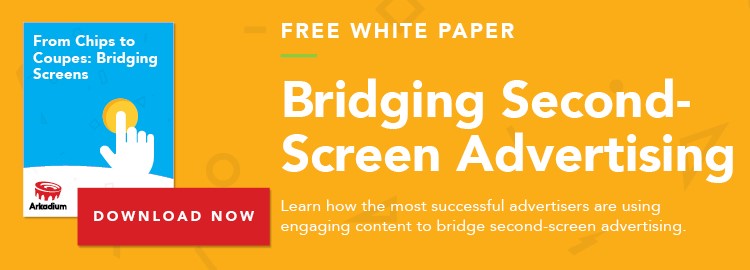How AI is Making Content Personalization a Reality

Artificial intelligence is being touted for its ability to help digital publishers in a variety of ways. Perhaps most importantly, it’s on the cutting edge of a direction publishers are heavily interested and arguably invested in: content personalization.
And for good reason: not only do modern users expect their media to be custom tailored, but personalization also increases user engagement, monetization, and shareability.
Empowered with AI, digital publishers are able to deliver personalized content at scale by learning users’ browsing habits and analyzing behavioral data.1
“In the specific case of news media, articles can be processed through algorithms that analyze readers’ locations, social media posts and other publicly available data. They can then be served content tailored to their personality, mood and socioeconomic status, among other things,” says Francesco Marconi, manager of strategy and development at AP.2
Personalization at mass scale is a near impossible task for human journalists, but Reg Chua, who manages innovation at Thomson Reuters, sees potential with AI technology.
“For 150 or more years, news has focused on stories of the most interest to the most people. But now a financial report could include a paragraph telling you how your own portfolio is doing: ‘the market is up, but you are down, and if you hadn’t sold your IBM stocks last week you would be so much higher right now’.”3
Chua goes even further, predicting AI to win a Pulitzer Prize for its achievement in personalization.
“I think it may well be that in the future a machine will win not so much for its written text, but by covering an important topic with five high quality articles and also 500,000 versions for different people, he says.”4
While hyper-targeted news stories may be the future of journalism, digital publishers are already personalizing content through other means.
For example, chatbots use AI to stimulate conversations with human users. Eventually, after continued user interaction, chatbots can recommend news and stories that are personalized to meet a user’s interests.
In the press release announcing their first chatbot, CNN claims, “Subscribers to CNN on Messenger will receive a daily digest of top stories within the e-Messenger app. The bot will also recommend personalized content based on a user’s preferences and learned interests. The experience gets more personalized with each interaction on Messenger.”5
Additionally, digital publishers are using recommendation engines with personalization and data capabilities to individualize their sites.
For example, The New York Times developed an AI-based algorithm that combined a number of previously tested personalization models. The hybrid personalization engine — termed Collaborative Topic Modeling — models content, adjusts by viewing signals from readers, models reader preference, and makes recommendations by similarity between user preference and content.6
What’s more, AI-based recommendation engines aren’t just for text-based articles — they are being integrated into multimedia and video players as well.
Prometheus Global Media — publisher of The Hollywood Reporter and Billboard Magazine — has harnessed machine learning technology to personalize video programming.
Prometheus uses personalization plugins to ensure its video players are surfacing the most relevant video recommendations to its users.7
Over time, users are more likely to stay on the site after the initial video when recommendations are tailored to their interests. Additionally, these users are more likely to share content on social media, which helps Prometheus acquire new visitors organically.8
Overall, digital publishers should be excited about the many personalization possibilities that AI brings.
1 “How Personalization & Artificial Intelligence Are Taking Branded Content to the Next Level.” FUSE Enterprise. N.p., n.d. Web. 08 May 2017.Web. 4 Apr. 2016.
2 “How Personalization & Artificial Intelligence Are Taking Branded Content to the Next Level.” FUSE Enterprise. N.p., n.d. Web. 08 May 2017.
3 Holmes, Jonathan. “AI is already making inroads into journalism but could it win a Pulitzer?” The Guardian. Guardian News and Media, 03 Apr. 2016. Web. 08 May 2017.
4 IBID
5 “How Publishers Can Gain Traction With a Bot Strategy.” The Swat.io Product Blog. N.p., 05 Oct. 2016. Web. 03 Feb. 2017.
6 IBID
7 Castelino, Rohan. “Publishers Up Video Revenue With Personalization.” Publishing Executive. N.p., 18 Jan. 2017. Web. 09 May 2017.
8 IBID


